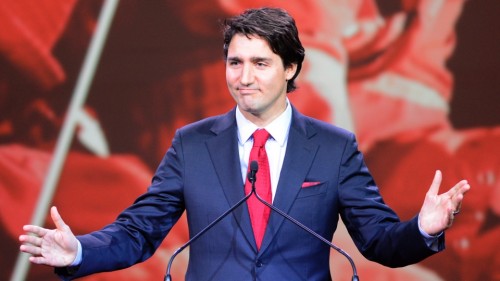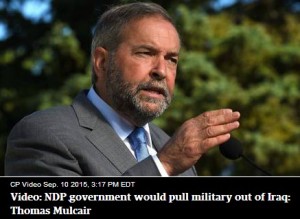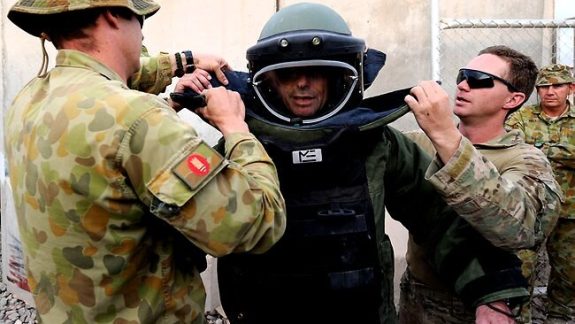Canadian Election: Paradigm Change for the Better?

Denis Bright invites discussion about the rise of inclusive politics in Canada with the formation of a majority Liberal government after nine long years in Opposition. Is the conservative political template which has dominated representative democracies for most of the last 50 years being finally challenged by voters with implications for election strategies in other representative democracies?
Is Justin Trudeau’s majority Liberal government in Canada part of a paradigm change in the politics of representative democracies?
For much of the past 50 years, the conservative template constructed by President Nixon in the US and Margaret Thatcher in Britain has been the political model for a succession of representative governments in economically developed countries.
Now Justin Trudeau has shattered the political template of the militarized low tax state with a commitment to a deficit budget to promote economic recovery and the withdrawal of CF-15 fighter jets from Iraq and bombing raids in Syria.
The extent of Justin Trudeau’s political landslide is quite incredible and perhaps only comparable to the Queensland state election result on 31 January 2015.
Trudeau’s Liberal Party has drawn its support from both the right and left of the political spectrum. The opposition Conservative Party has half its previous representation. On the cross-benches, the New Democratic Party (NDP) and the Greens are in a similar position. Only the Bloc Quebecois (BQ) has improved its representation.
Under the austere political template of Prime Minister Stephen Harper since 2006, Canada developed a neo-populist style of market-led economic development. Canada’s foreign and defence policies met all the requirements of NATO.
Writing in The Atlantic on 18 October 2015, Parker Donham notes the desperate measures used by Stephen Harper to cling onto government.
Stephen Harper wanted the electorate to focus on insignificant symbolic issues such as desire by one woman to wear a niqab veil during a citizenship oath ceremony. The Canadian Court of Appeal upheld her right as she was prepared to reveal her true identity in private before the ceremony.
The conservative populist strategy failed to strike a real rapport with the electorate.
Harper pounced on the decision; his deputies promised an appeal to the Supreme Court of Canada, and the prime minister hammered the issue during a September 24 French-language debate in Montreal, Quebec.
“When we join the Canadian family, we should not hide our identity,” Harper declared. “Never will I say to my daughter that a woman has to cover her face because she’s a woman.” Mulcair, for his part, accused Harper of attempting to “hide his record”—particularly on the failing economy-behind a niqab” (Parker Dongham, The Atlantic 18 October 2015).
Another desperate measure noted in The Atlantic article was the recruitment of Australian election strategist Lynton Crosby to promote negative perceptions of recent Arab immigrants. This became a political diversionary issue to distract from Canada’s ailing economic growth and employment record.
Voters were canny enough to realise that the decline in commodity prices could not be concealed by the conservative political template with its emphasis on balanced budgets and market-led growth.
The Conservative Government could hardly run on its record despite a modest last-minute pre-election improvement in short-term economic growth, retail sales and housing starts.
Reflecting the conservatism of the prairie provinces, The Winnipeg Free Press cheered on the extent of the surplus in its federal budget coverage. The government’s budget graphics were carefully reproduced with the caveat that the important surplus should have been higher but for the collapse of oil and gas prices in November 2014.
The Harper government lived up to its promise Tuesday to eliminate the deficit, making use of billions of dollars in balance-sheet tweaks designed to cushion the blow of the oil-price shock.
Finance Minister Joe Oliver delivered a federal budget that boasted a narrow $1.4-billion surplus for 2015-16, scoring a politically critical goal just six months before a scheduled election in October (Winnipeg Free Press 21 April 2015).
To the last, the Harper Government had clung to its convictions about the value of a balanced budget during a period of rising unemployment to 7.1 per cent and falling commodity prices for oil, gas, coal and most other minerals.
The National Democratic Party (NDP) saw its vote and representation in the House of Commons halved with a -10.9% swing.
When the NDP was narrowly leading the opinion polls just one month before polling day, its finance spokesperson Andrew Thomson of Saskatchewan and a number of high profile NDP candidates made the error of promising more balanced budgets for the next four years with modest increases in corporate taxes and an end to family income splitting as introduced by Stephen Harper.

Opposing Canada’s overseas military commitments in Iraq and Syria (The Globe and Mail 10 September 2015)
The commitment by Thomas Mulcair to withdraw all Canadian troops from both Iraq and the bombing of ISIL targets in Syria did not reverse the NDP’s decline in the last month of the campaign.
The NDP’s anti-war commitment came just one week after allegations surfaced of civilian deaths in Canada’s bombing raids on ISIL targets in Syria.
Justin Trudeau supported the NDP’s commitment to withdraw fighter jets from military operations in Iraq and Syria but offered an economic policy that was more daring in addressing the problems of economic stagnation and rising unemployment to 7.1 per cent of the workforce.
Let’s hope that advocates of political change are taking note of the Canadian election on 19 October 2015. Only time will tell if it is indeed a watershed in democratic politics.
 Denis Bright (pictured) is a registered teacher and a member of the Media, Entertainment and Arts Alliance (MEAA). He has recent postgraduate qualifications in journalism, public policy and international relations. He is interested in developing progressive public policies that are compatible with commitments to a social market model within contemporary globalization.
Denis Bright (pictured) is a registered teacher and a member of the Media, Entertainment and Arts Alliance (MEAA). He has recent postgraduate qualifications in journalism, public policy and international relations. He is interested in developing progressive public policies that are compatible with commitments to a social market model within contemporary globalization.
Like what we do at The AIMN?
You’ll like it even more knowing that your donation will help us to keep up the good fight.
Chuck in a few bucks and see just how far it goes!
Your contribution to help with the running costs of this site will be gratefully accepted.
You can donate through PayPal or credit card via the button below, or donate via bank transfer: BSB: 062500; A/c no: 10495969










